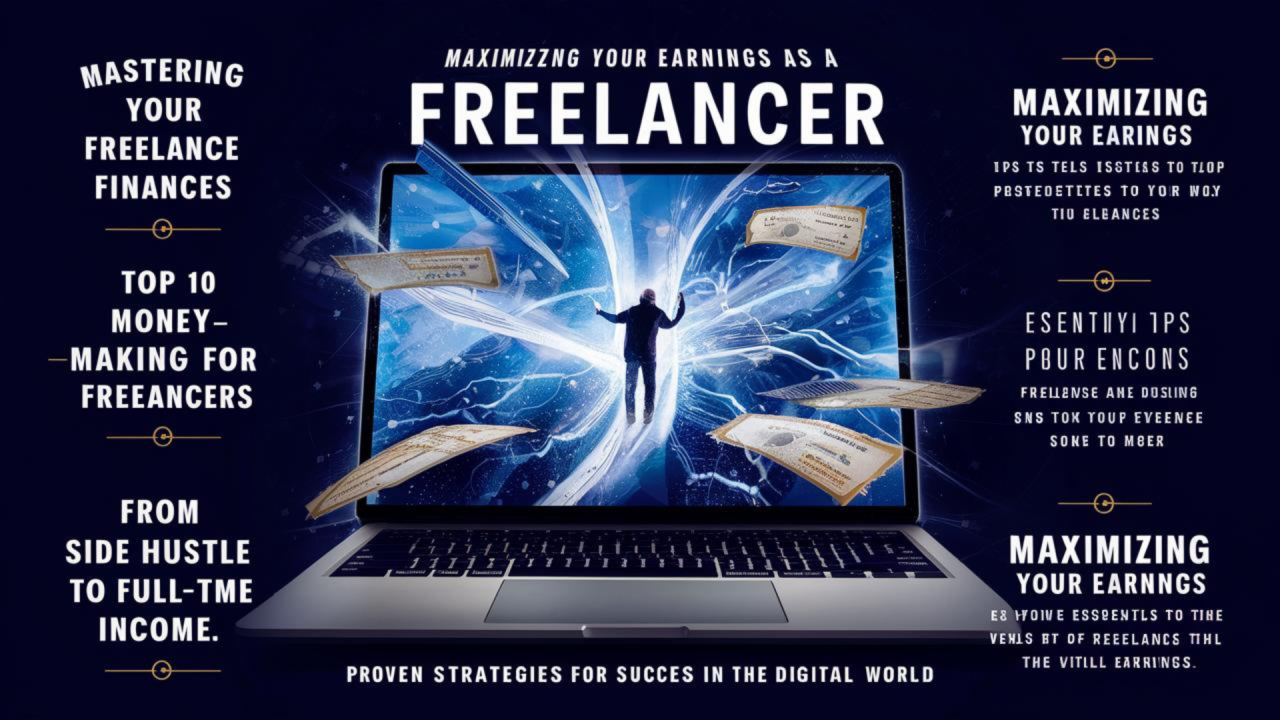How to Make Money Online with Zero Capital in 2025.
Learn practical, proven ways to make money online with zero capital in 2025. Start earning from home with free tools, smart skills, and real strategies. If you’ve ever wondered how to make money online with zero capital, you’re not alone. Millions of people are turning to the internet to earn income without investing a single dollar upfront. Whether you’re a student, job seeker, or entrepreneur, there are legitimate, low-risk ways to build an online income from scratch all you need is time, consistency, and the right guidance. In this guide, you’ll learn proven online business ideas, free tools, and practical steps you can start today to generate income even if you’re starting from zero. 1. Understanding How to Make Money Online Without Capital Before you earn online, you need to understand the system — what works and what doesn’t. Many people believe that making money online requires big investments or fancy websites. That’s simply not true. The internet has democratized income — meaning anyone can start from nothing and build a full-time career online. Here’s what you really need: The key is to focus on low-cost, high-value opportunities — methods that don’t require money but pay off in time. 2. Freelancing: Turn Your Skills into Cash Freelancing is one of the fastest and most realistic ways to make money online with zero capital. Platforms like Upwork, Fiverr, and Freelancer.com allow you to offer services for free — no investment required. You simply create a profile, list your skills, and start bidding on jobs. Popular Freelance Skills You Can Offer: 💡 Example:A student in Nigeria started offering resume-writing services on Fiverr using free templates from Canva. Within three months, she earned over $700 working part-time. Quick Tips for Freelancing Success: 3. Affiliate Marketing: Earn Commission Without Selling Affiliate marketing lets you earn by promoting other people’s products — no capital, no inventory. When you join affiliate programs like Amazon Associates, ClickBank, or Impact, you get special links that track sales from your recommendations. You earn a commission every time someone buys through your link. Steps to Start Affiliate Marketing for Free: 💡 Example:A YouTuber shared AI tool reviews with affiliate links in video descriptions and generated over $1,200 monthly — with zero startup cost. Pro Tip: Focus on high-paying affiliate niches like software, online education, or web hosting. 4. Content Creation: Build a Personal Brand Create content that solves problems — and your audience will pay you back in loyalty and income. Whether it’s YouTube, TikTok, or blogging, content creation is a powerful long-term strategy to make money online. You can start with a smartphone, free editing apps, and creativity. How to Start Without Capital: 💡 Case Study:The YouTube channel BESTHOPE AI built a following around AI tutorials and productivity tips, growing organically without paid ads. Consistency and useful content made the difference. Monetization Options: 5. Online Tutoring and Coaching If you can teach, you can earn — even from your bedroom. The e-learning industry is booming, and online tutoring is one of the most in-demand remote jobs. Where to Start: 💡 Example:A math tutor started offering lessons through Google Meet. She posted short clips of her teaching on TikTok and gained students from three countries — all for free. 6. Dropshipping with Zero Upfront Cost You can run an online store without ever handling inventory. Dropshipping allows you to sell products online, while suppliers handle storage and shipping. Some platforms even let you start for free. How to Begin: 💡 Pro Tip:Use AI tools like ChatGPT to generate product descriptions and marketing captions for free. 7. Microtasks and Reward Platforms If you need quick cash, try microtask websites. These sites pay for small online jobs like surveys, data labeling, or app testing. Top Platforms: These tasks don’t pay huge amounts but are perfect for beginners testing the online income world. 8. Selling Digital Products Create once, sell forever. Digital products like eBooks, templates, or online courses can be made for free using tools like Canva, Google Docs, or Notion. Ideas for Digital Products: 💡 Example:A creator made a free eBook titled “30 Ways to Make Money Online” using Google Docs and sold 200+ copies on Gum road 9. Social Media Management Businesses are desperate for people who can manage their online presence. If you can schedule posts, write captions, or analyze metrics, you can offer social media management as a service. Start With: 💡 Bonus Tip:Track your results (e.g., engagement growth) to show future clients your impact. 10. Writing and Publishing eBooks If you love writing, turn your knowledge into passive income. You can publish an eBook on Amazon Kindle Direct Publishing (KDP) without any cost. Steps: 💡 Example:A first-time author published a 30-page guide on personal finance and made $500 in the first month — with zero capital investment.


